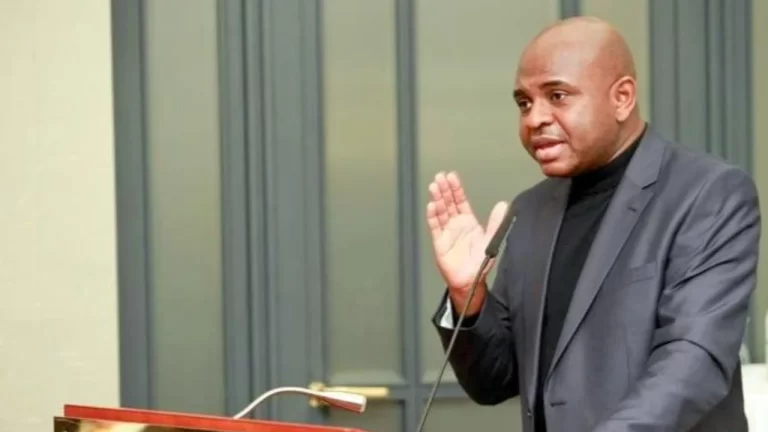A former deputy governor of the Central Bank of Nigeria, Kingsley Moghalu, has said that those who want the Naira to be N400 to the Dollar are living in a dream world.
According to him, the exchange rate should reflect its market value in reality.
Moghalu claimed that Godwin Emefiele’s era at the Central Bank created artificiality that it sought to maintain to please economic illiterates in political power at the time.
Moghalu, who made this known in a post on his X handle on Sunday, insisted that artificiality created room for massive arbitrage by speculators which bled the economy.
He suggested that the sooner the country focused on the creation of vale-added manufacturing export economy that earned forex beyond oil in real and significant terms, the better.
He said: “Those who want the Naira to be N400 to the $ are living in a dream world. Even discounting for the negative impact of speculative attacks on the value of the Naira, the exchange rate will (and should) reflect its market value in reality, not the artificiality that the Emefiele era central bank sought to maintain to please economic illiterates in political power at the time.
“That artificiality created room for massive arbitrage by speculators which bled the economy. Nigeria does not (yet) have a productive export economy. That’s the heart of the matter.
“And we do not have $100 billion in foreign reserves. So on what basis would the Naira forex rate return to some fantasy land soon? It will also take time to regain or achieve full investor confidence such as we had when we were there (and the rate was N150-165 to the $.
“The sooner we focus on a painstaking creation of vale-added manufacturing export economy that earns forex beyond oil in real and significant terms, the better. Key to this is the electricity conundrum in which we are at less that 4,000 megawatts of generation for a population of 200 million for decades now.
“Take power to even 20K megawatts (let’s not talk of 50K for South Africa’s 60 million population or Brazil’s 181K megawatts for a population only slightly larger than Nigeria) and you will see what the Nigerian entrepreneurial spirit is capable of.”
